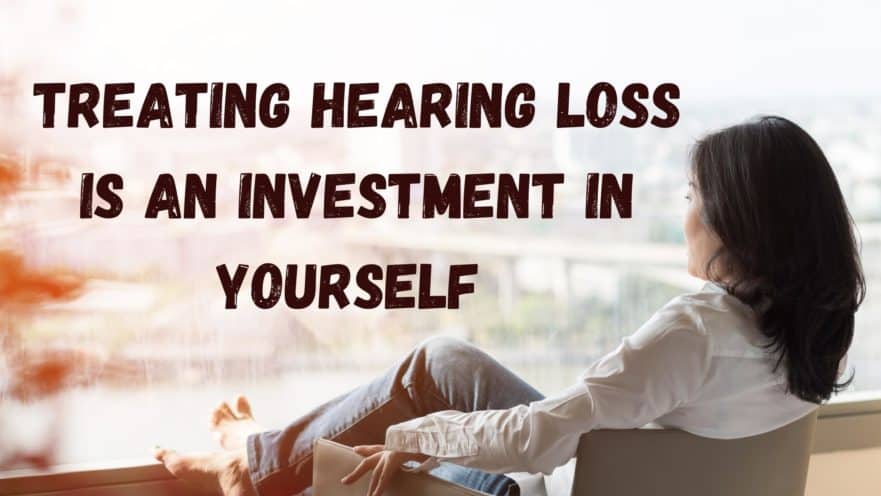Today in America, some 48 million people are living with hearing loss. If you don’t have hearing loss yourself, you probably know someone who does. And, in all likelihood, you will have it eventually. While about one-third of those aged 60–69 have hearing loss, about two-thirds of those 70 and up have it. Among those who live to be 100, nearly everyone has it, suggesting we’ll all experience hearing loss if we only live long enough.
Hearing Loss Is Undertreated
But while hearing loss remains one of the most common medical concerns for those over age 60, it is still sorely undertreated. Hearing loss was once thought to be an annoying—but relatively benign—part of aging. While medical statistics now indicate that hearing loss is actually quite dangerous to leave untreated, public understanding and common practice haven’t quite caught up. Only about one out of five people who need hearing aids is wearing them, and, on average, we tend to wait seven years from the time we notice hearing loss to the time we start treating it with hearing aids.
Hearing Loss Causes Difficulties When Left Untreated
This long lag-time between recognizing hearing loss and scheduling a hearing test is part of the reason that so many people have difficulty adjusting to new hearing aids. Hearing loss creeps in slowly, so our brains get used to it, little by little. If you wait over half a decade to treat hearing loss, your brain will become very used to receiving less information from your ears. Studies show that cognitive difficulties and memory issues can start to occur during this time. And once you do start wearing hearing aids, you are likely to struggle to learn to listen again. Even when you hear speech clearly, the habit of not listening to it can be hard to overcome.
Hearing difficulties and habituation to ignoring the world of sound do not occur in a vacuum. Remember that while you are hearing less and less of the world around you, your life is still happening. You might notice yourself being more fatigued after a dinner party, or that you’re not as interested in going out as you used to be. You’re likely to participate less in conversations, as it is harder and harder to keep up. Another way of putting it is that hearing loss makes it harder for us to enjoy the moment. We start to become isolated from what is happening right in front of us.
Problems Related to Hearing Loss Are Hard to Recognize
Because the process happens so slowly, many people don’t realize it’s taking place, or they may think their fatigue or lack of interest in social gatherings is a separate age-related phenomenon—”I can’t stay out as late as I used to.” In fact, this is how hearing loss works to interrupt our lives. It’s almost unbelievable how we can fail to notice it happening, yet millions of people live with untreated hearing loss—sometimes for decades—without realizing just how big an impact it has on their lives.
Hearing Aids Improve Life Satisfaction
Those who treat their hearing loss with hearing aids tend to be happier, more optimistic, more physically fit, and more socially engaged than those with untreated hearing loss. They even tend to earn more at work! If hearing loss is part of your life, then a good set of hearing aids should be at the top of your list of priorities. Getting hearing aids is the best way to ensure that your future can be filled with memorable moments, and that you can avoid the pitfalls that hearing loss tends to bring with it.
Untreated Hearing Loss Has Consequences
Earlier we mentioned that it is dangerous to avoid treating hearing loss. While governments and insurance companies are just starting to catch on, medical professionals have known for some years now of what can happen when hearing loss goes untreated. It is common for individuals with hearing loss to become depressed, anxious, paranoid, and socially isolated. Those with untreated hearing loss are more susceptible to accidental injury. The World Health Organization (WHO) even named hearing loss the #1 modifiable risk factor in the development of Alzheimer’s disease and cognitive decline. That’s right—the risk of developing Alzheimer’s goes up according to the degree of hearing loss one has.
If you or a loved one has hearing loss, don’t put off seeking treatment any longer. A good set of hearing aids is an important investment in yourself, and living life to the fullest. Make an appointment for a hearing test today and find out what hearing aids can do for you!


